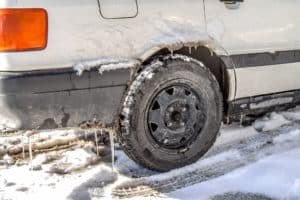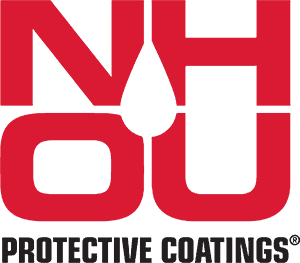The Need for Rust Inhibitors for Vehicles in Sub Zero Temperatures

If you live in Canada or any other country where temperatures drop below zero and are freezing cold, then you’d know how required de-icing methods are to keep life going smoothly. During the winter season, roadways become dangerous, especially after a heavy snowstorm.
As the snow gets deposited, it gradually creates a thin film of ice. Not only ice is slippery for pedestrians but also for drivers as they can lose control of their cars and trucks, thereby increasing the risk of accidents and injuries. To prevent such incidents, people heavily rely on de-icing methods. One such method that has gained massive popularity worldwide is the use of road brine.

Snow clearing in the mountain road
Although we have already discussed much road brine in our previous posts, we’ll just give you a quick overview of what exactly road brine is. Road brine can be best defined as a mixture of salt and water. It is also often mixed with other additives and then spread on the roadways. This mixture is anti-icing. It decreases the probability of freezing roadways.
The salt used in the mixture hinders the water’s ability to create icy structures. Plus, it melts it with ease once the snowfall is over. Moreover, the road brine mixture works faster than rock salt. The mixture gets to work as soon as the first snowflake touches the road and comes into contact with the salt in the brine. The combination disrupts the molecular structure of water, ensuring the pavements are kept free from ice.
Though road brine is essential for de-icing, it can nonetheless silently destroy your vehicle. That’s right; road brine has the potential to rust and corrode your vehicle and cost you hundreds of dollars in damage. And that is not an overstatement. Needless to say, the rust can eat away your car or truck before you know it. Hence, lowering its:
- Visual appearance
- Performance
- Value
It is essential to note here that rust is caused by the acid that is created when the salt is dissolved by the moisture present in the air. Salt remains in the air like a crystal until the humidity reaches seventy percent. Similarly, magnesium chloride in road brine dissolves when the humidity is only twenty and thirty percent.
Furthermore, the salt triggers and starts the process of rusting and speeds oxidation on metal chassis. And before you know it, your vehicle is damaged badly. The salt sits on the undercarriage of your car and corrodes it inside and out. If rust is left addressed it may risk your safety and vehicle’s performance.
This is where rust inhibitors come into the picture. Read on to learn more about rust inhibitors in detail.
What are Rust Inhibitors?
To begin with, rust inhibitors can be classified by their chemical nature in two different categories such as:
- Organic
- Inorganic
However, the action mechanism can be divided into three categories: anodic and cathodic fall under the inorganic category, while adsorption falls under the organic category. In other words, the inorganic rust inhibitors have cathodic or anodic actions.
Furthermore, the rust inhibitors for trucks and cars are basically chemical compounds. These compounds are added to different liquids in a vehicle to provide an extra layer of protection against rust. They work to stop rust from the inside and outside. Sometimes they can be added to the oil and even gas to stop and prevent oxidization inside the engine.
However, the real issue is what lies underneath the surface. That’s right; here we are talking about the undercarriage of the vehicle. The undercarriage of the vehicle is the most exposed area to rust and corrosion. To get the best results, it is advisable to use rust inhibitors in combination with oil-based rustproofing like NH Oil Undercoating®.
The protection from rust and corrosion with these products largely depends on their application. Although the product can be applied at home by yourself, it is nonetheless advisable to go to a professional and get the oil-based rustproofing done. A professional has the experience and expertise to get the job done fast and right. Rest assured, they can spray rust inhibitors carefully and apply rustproofing formulations smoothly and in every nook and corner of the undercarriage, making sure that it is well-protected from rust and corrosion for months.
Apart from that, it is recommended to use rustproofing and rust inhibitors because they can easily extend the life of your vehicle. This is definitely worth investing in because, after all, your car is the second most expensive asset you’re likely to own after a home. Therefore, it is vital to keep it well-maintained and in top condition. Also, when your vehicle is well-maintained, you can rely on it and minimize the risk of system failures which otherwise increases when your car is rusted. Rust can wreak havoc o the systems of your vehicle, including leaf-springs and brake lines. There have been many incidents where accidents have occurred in the US because of system failures due to rust and corrosion. Don’t let this happen to you.
Consider rustproofing now. For more information about rustproofing and rust inhibitors or to order NH Oil Undercoating® contact us today. NHOU® Oil Undercoating® is a potent formulation designed exclusively to provide your vehicle with an extra layer of protection from rust and corrosion. The self-healing characteristic further ensures that the rust stops from spreading and all moisture is pushed out- minimizing risk and damage.
